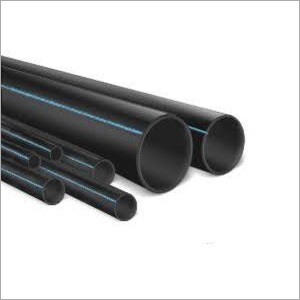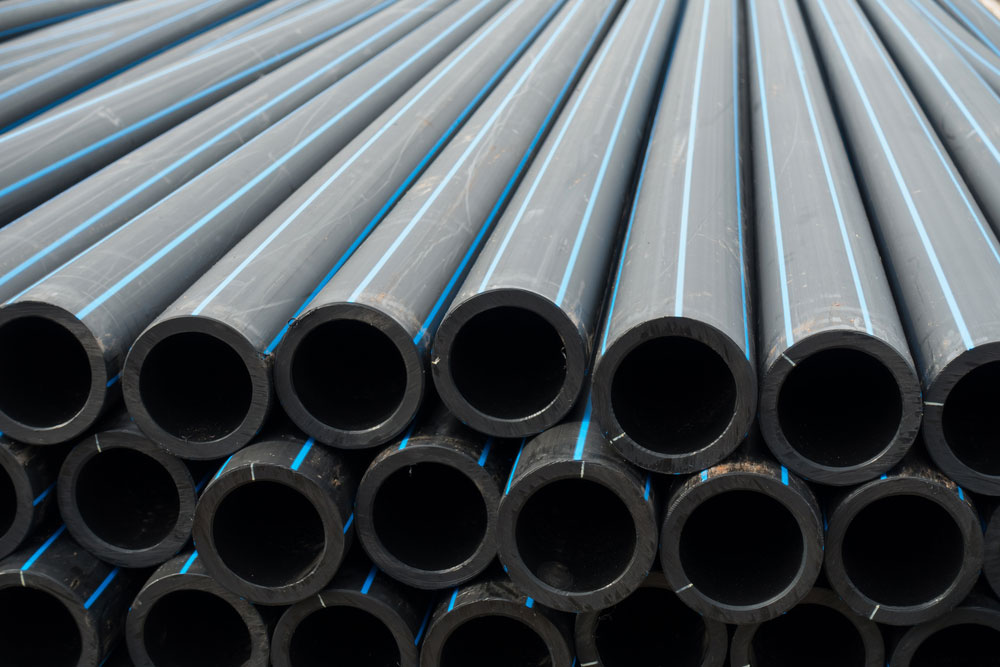Recognizing the Trick Conveniences of HDPE Pipeline for Water and Wastewater Monitoring
The usage of HDPE pipeline in water and wastewater monitoring presents numerous advantages that merit consideration. Its phenomenal sturdiness and lengthy life expectancy make it a recommended selection for lots of jobs. Furthermore, the material's resistance to corrosion and chemical damage enhances its integrity in various atmospheres. Nevertheless, the benefits extend past simply durability and resistance. Exploring its cost-effectiveness and ecological impact reveals also a lot more compelling factors for its extensive adoption in modern-day facilities
Extraordinary Durability and Long Life

HDPE pipeline sticks out for its exceptional toughness and durability, making it a preferred option in water monitoring systems. Built from high-density polyethylene, these pipelines can endure substantial pressure and stress, making certain dependable efficiency gradually. Their robust nature enables them to sustain extreme environmental conditions, consisting of temperature level fluctuations and soil activities, which can cause other materials to stop working.
The lifespan of HDPE pipelines commonly surpasses half a century, supplying an economical remedy for towns and markets alike. In addition, the material's light-weight homes streamline installment, reducing labor costs and timeframes. This toughness lessens the demand for constant repairs or replacements, even more improving its financial charm.
In water administration applications, the integrity of HDPE pipelines suggests less disruptions and enhanced solution connection, making them indispensable to lasting framework growth. The mix of longevity and longevity strengthens HDPE's duty as a keystone in reliable water monitoring options.

Resistance to Corrosion and Chemical Damages
While lots of products surrender to deterioration and chemical damages with time, HDPE pipelines exhibit remarkable resistance, making them optimal for different water administration applications. This durability comes from the molecular structure of high-density polyethylene, which is inherently non-reactive and does not corrode like metals or degrade from direct exposure to harsh chemicals. Consequently, HDPE is very reliable in settings with hostile compounds, such as wastewater systems that may include acids, bases, and organic solvents.
Additionally, HDPE pipelines can stand up to ecological aspects such as soil acidity and saline problems, better boosting their suitability for diverse applications (hdpe pipe in stock Midland TX). Their capacity to keep architectural stability over time lowers the threat of leaks and failings, which is important in making sure the safety and integrity of water distribution and wastewater monitoring systems. The resistance to rust and chemical damage noticeably contributes to the total effectiveness and long life of HDPE piping services.
Cost-Effectiveness and Financial Benefits
When thinking about the economic implications of water monitoring systems, the cost-effectiveness of HDPE pipes comes to be evident. These pipelines offer lower installment and maintenance expenses contrasted to traditional products like metal or concrete. Their lightweight nature streamlines transportation and setup, causing reduced labor costs. In addition, HDPE pipes exhibit a lengthy life-span, frequently going beyond half a century, which translates to fewer substitutes and lasting savings.
Moreover, the resistance of HDPE to deterioration and chemical damages lessens the requirement for pricey repairs and replacements. The pipes likewise support effective water circulation, lowering power costs associated with pumping systems. By reducing leaks and water loss, HDPE pipes contribute to considerable financial advantages for communities and sectors alike. On the whole, the first financial investment in HDPE piping can generate significant economic returns over the life-span of the water monitoring system, making it a sensible selection for lasting framework advancement.
Ecological Sustainability and Minimized Effect

Convenience and Adaptability in Setup
Due to their distinct residential properties, HDPE pipelines provide remarkable versatility and flexibility in installment, making them appropriate for a wide variety of applications. Their light-weight nature permits much easier handling and transport, reducing labor prices and setup time. HDPE pipes can be bent and shaped to fit various surfaces and job requirements, which is specifically helpful in challenging environments.
In addition, their resistance to rust and chemical damages enables for installation in varied settings without the demand for specialized safety coverings. The capacity to fuse joints produces a continuous, leak-free system, improving the overall stability and reliability of the installment. HDPE's flexibility additionally accommodates ground activity, decreasing the threat of damage in locations prone to changing dirt. Overall, these attributes make HDPE pipes not only functional but likewise a preferred option for water and wastewater monitoring systems.
Frequently Asked Inquiries
How Does HDPE Pipe Contrast to PVC in Water Management Applications?
HDPE pipe supplies superior versatility, resistance to corrosion, and toughness contrasted to PVC. Its lighter weight helps with less complicated installation, while its long life expectancy lowers replacement costs, making HDPE a favored selection in water monitoring applications.
What Is the Life Expectancy of HDPE Water Lines Under Typical Problems?
Under common conditions, HDPE pipes can have a life-span varying from 50 to 100 years. Their resilience and resistance to rust add to their lasting efficiency in various applications, making them a reputable selection for framework.
Are HDPE Pipes Recyclable After Their Life Span?
Yes, HDPE pipes are recyclable after their service life. hdpe pipe in stock Midland TX. They can be processed and repurposed into new products, considerably lowering ecological influence and advertising sustainability within the market, making them a green selection for piping options
What Is the Setup Process for HDPE Pipeline?
The installation procedure for HDPE pipelines entails website prep work, trenching, pipe fusion or mechanical signing up with, backfilling, and stress testing. Proper strategies assure a long lasting and effective system for carrying water and wastewater efficiently.
Can HDPE Pipeline Be Used for Both Safe And Clean and Non-Potable Water Equipments?
Yes, HDPE pipes can be used for both safe and clean and non-potable water systems. Their versatility, durability, and resistance to deterioration make them appropriate for various applications, making certain risk-free and effective transport of water in various contexts.